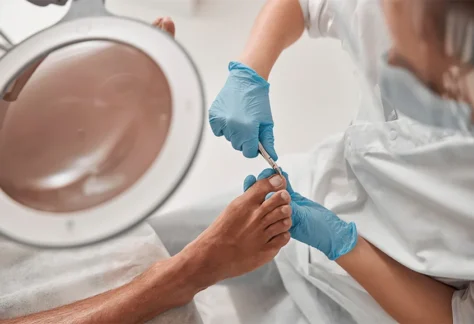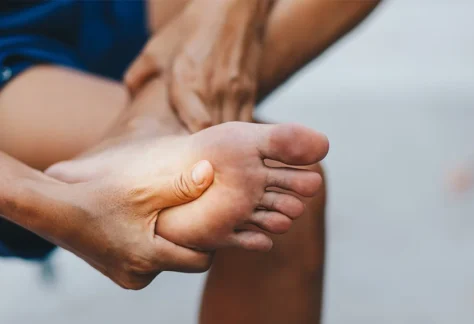In This Article:
- Teeth grinding is a symptom of stress and anxiety. If you grind your teeth, consult with your dentist to set up a personalized treatment plan.
Teeth grinding affects up to a third of adults during the day and one in ten adults at night. Bruxism (the medical term for teeth grinding) happens when people grind their teeth or clench their jaw without knowing. Most people who grind their teeth or clench their jaw—during the day or at night—are unaware they are doing it, until they visit their dentist.
People who are easily frustrated, stressed or anxious are more likely to clench their jaw or grind their teeth. Your dentist will be able to tell if you have are doing this after examining your teeth. If you think you are grinding your teeth or clenching your jaw, look out for the common symptoms. It’s important to visit your dentist regularly — they will help you prevent further damage to your teeth before it happens.
Symptoms and Causes of Teeth Grinding
Although doctors tend to disagree about the root causes of teeth grinding, they all agree it is connected to heightened stress and anxiety. In more extreme cases, it may be related to sleep disorders, caffeine consumption or an abnormal bite.
Do you think you might be grinding your teeth at night? If you do, look out for these common symptoms: a sore jaw, headaches or loose teeth. If left untreated, teeth grinding can lead to more serious dental problems, such as fractures, receding gums, loss of teeth or harm to your jaw and neck muscles.
When To Seek Care
There’s no medication you can take to stop grinding your teeth, but your dentist can recommend treatment and prevention options. The best place to start is to ensure you are keeping up with a regular dental hygiene routine: brushing, flossing and visiting your dentist.
If your dentist notices warning signs that you are grinding your teeth at night, they will suggest you wear a mouthguard. The mouthguard only needs to be worn at night before you go to bed. It will help protect your teeth from grinding against each other and causing further pain or damage.
Your dentist can order a mouthguard that is custom-made for your bite so it fits perfectly when you put it on. You never have to worry about breaking the mouthguard because they are made of strong materials.
Teeth Grinding Treatments
The best way to alleviate the stress and anxiety that is making you grind your teeth is to take part in activities that help you relax. Try out meditation, yoga or exercise, until you find what works for you. If you have a habit of clenching your jaw throughout the day, try out meditative exercises: take deep breaths, close your eyes, and stretch your mouth muscles.
In addition to physical exercise, a therapist can address the underlying emotional and mental issues that are giving you stress and anxiety. Your therapist can help you establish healthy coping strategies to deal with everyday challenges.
Changes to your diet can also contribute to a clearer state of mind. Try reducing your caffeine and alcohol intake. Small changes to your daily routine can make a big difference. Make sure you are maintaining a nourishing diet and a consistent sleep routine.
Treating the underlying causes of stress and anxiety may help to reduce some of the jaw clenching and teeth grinding during the day, but wearing a mouthguard at night may still be necessary. Meet with your dentist to set up a treatment plan that best suits your personalized needs.







